Christianity can be condensed into four words: Admit, Submit, Commit and Transmit. -Samuel Wilberforce
Holy Week Events
Tuesday, April 1st, 2008
Could you elaborate on the exact dates this year for Palm Sunday, the passover meal, the Crucifixion, and Resurrection Morning. I abstained from the first celebration and would like to honor the Lord at the Passover.
Q. Could you elaborate on the exact dates this year for Palm Sunday, the passover meal, the Crucifixion, and Resurrection Morning. This is the first year I was aware of the difference between Easter and the Passover. I abstained from the first celebration and would like to honor the Lord at the Passover. Thank you very much.
A. Passover is a date specific holiday and always comes on the 14th day of the Jewish month of Nisan, no matter what day of the week it is. This year, 2008, Passover is Sunday April 20 on our calendar. Resurrection morning is always on the Feast of First Fruits, the first Sunday after Passover, so this year it’s on Sunday April 27.
There are really 2 Passover meals. The first is after sundown and before midnight on the 14th. It’s a quick ceremonial meal that’s no longer even observed by many Jews. The great festival meal, called the Seder, is eaten on the 15th, the first day of the feast of unleavened bread which is a Holy Day.
Remember that on the Jewish calendar evening precedes morning, so Jesus ate the ceremonial Passover meal, was arrested, crucified and buried, all on Passover.The special Sabbath that John referred to and that required that the Lord’s body be taken down before sunset was the first day of the Feast of unleavened bread. (John 19:31) He referred to Passover as the day of Preparation, because that’s the day on which all the work necessary for the Seder meal is done.
Only in some years do things line up as they did in the year Jesus was crucified because Passover can be any day of the week that’s also the 14th day of the month. But Resurrection morning is always the following Sunday. In the year of His death Passover was on the Thursday between Palm Sunday and Resurrection morning.
The anniversary of the first Palm Sunday will be April 13 this year, so you still have time to observe all the events of Holy Week on the anniversary of their occurrence. It’ll just require two weeks to do it.
Passover And FirstFruits
Wednesday, September 3rd, 2014
Q. My question relates to the day in which we recognize the resurrection of Christ. In one or two articles you say that Christ rose again on the Sunday after Passover. There is a problem with that because Passover jumps to different days on our Gregorian calendar. Do you say that it is the Sunday after Passover in order to keep it simple for those who don’t know?
A. This issue is not unique to the Gregorian calendar. It’s true of theHebrew calendar as well. It stems from the fact that Passover was always on the 14th day of the month (Exodus 12:6) no matter what day of the week that happened to be, and the Feast of First fruits came on the day after the Sabbath that followed (Lev. 23:15), which is always a Sunday.
Therefore, there are only three days and three nights between the two in certain years, and those are the years when the 14th is also a Thursday. So while Passover floats through the week, resurrection morning is always the first Sunday morning afterward, because that’s the Feast of First Fruits.
The Week With Two Sabbaths
Friday, November 9th, 2007
My question is regarding your commentary about “Solving the Three Day Three Night Mystery”
Mark 16:1 says that they bought sweet species AFTER the Sabbath, but Luke 23:56 says they bought them BEFORE the Sabbath. Which Sabbath was Mark referring to?
Q. My question is regarding your commentary about “Solving the Three Day Three Night Mystery”
Mark 16:1 says that they bought sweet species AFTER the Sabbath, but Luke 23:56 says they bought them BEFORE the Sabbath. Which Sabbath was Mark referring to?
A. There were two consecutive Sabbaths that week that prohibited any work. Luke is talking about the special Sabbath that began at sundown Thursday called the Feast of Unleavened Bread. It’s the reason the Jews wanted the Lord’s body off the cross before sundown. (John 19:31) According to John 19:39 Nicodemus had brought 75 pounds of spices to the tomb which the women used in preparing for the Lord’s burial. Luke 23:56 doesn’t say that the women bought spices, only that they prepared spices and perfumes.
Mark is referring to the weekly Sabbath that begins at sundown Friday and ends at sundown Saturday. When the weekly Sabbath ended they bought more tocomplete their preparations (Mark 16:1) and then early Sunday morning went to the tomb. (Matt. 28:1)
Three Days Three Nights Follow Up
Sunday, March 29th, 2009
Q. If Jesus died on Thursday (Passover), and if at sundown immediately the feast of Unleavened Bread began, and if at sundown Friday the regular Sabbath started (Saturday), what day did the women buy and prepare the spices to anoint the body of Jesus? Mark says in 16:1 that they bought and prepared the spices “when the Sabbath was over,” speaking of Unleavened Bread, but Luke says they prepared the spices and perfumes and then rested on the Sabbath (Lk 23:56).
A. In the KJV Mark 16:1 says they had bought spices, indicating they had bought them previously, and Luke 24:1 says they had already prepared them when they went to the tomb, confirming the KJV translation of Mark 16:1. Also, John 19:39says that Joseph and Nicodemus brought 75 lbs. of spices with them when they first took to Lord’s body to the tomb.
As soon as Jesus was put on the cross they knew he was going to die. Someone would have had all day Thursday to buy and prepare the spices for His burial, since Thursday was a work day. Joseph and Nicodemus brought some with them when they quickly laid His body in the tomb at sunset and the women brought the rest when they came back after the two Sabbaths to finish the job.
Holy Week Chronology
Wednesday, April 16th, 2008
When the Protestant Church broke away from the Catholic church, they held onto some of their teachings. Like Jesus being crucified on Friday and risingSundaymorning. We know Jesus said He would be three days and three nights in the heart of the earth.
Q. I am interested in knowing where you stand. When the Protestant Church broke away from the Catholic church, they held onto some of their teachings. Like Jesus being crucified on Friday and rising Sunday morning. We know Jesus said He would be three days and three nights in the heart of the earth. We know now that He was crucified on a Wed. and put in the grave just before sunset, because the High Sabbath began after sunset which was Thurs.
According to this record he rose on Saturday just before sunset, because it would have been the first of the week after sunset. So the Sabbath is really still the right day for the believers to worship our risen Saviour.
A. Thursday is really the only day that works for the crucifixion. The Lord rode into Jerusalem on Sunday and allowed Himself to be hailed as Israel’s King for the first and only time in His ministry. This fulfilled the passover prophecy that the Lamb had to be selected on the 10th day of the month, and then had to be minutely inspected for 3 days (Monday the 11th, Tuesday the 12th and Wednesday the 13th) until the 14th. (Exodus 12:3-6)
He was crucified on Thursday, which was Passover, the day the lamb had to be sacrificed. It was also called Preparation day because it was the day before the feast of Unleavened Bread began when no work could be done. This is thespecialSabbath that John referred to in John 19:31. It began on the 15th which was Friday that year.
The next day was Saturday, the weekly Sabbath on which no work could be done. Finally the women came to the tomb at sunrise on on Sunday, the first day on which they could do the work of attending to His body. (Matt. 28:1)It was the Feast of First Fruits, the day after the first Sabbath after Passover. (Lev. 23:9-11)
If He had been crucified on Wednesday there wouldn’t have been time to meetthe 3 day inspection rule and if the special Sabbath was on Thursday the women could have come on Friday to anoint the body.
He died on Thursday, day one, then Friday was night one and day two, Saturday was night 2 and day three, Sunday was night 3 and He was out of the tomb before sunrise when the women got there.
Paul wrote that we’re not to judge people as to a Sabbath day (Col. 2:16), that each person is to be fully convinced in his own mind what is right (Rom. 14:5). If you like Saturday then worship on Saturday. I prefer Sunday

When Did Jesus Die?
Tuesday, March 10th, 2009
Q. Thanks so much for your web site, it has been a blessing. Once again, here is another thought about the timing of our Christ being crucified. I’ve read a lot of the articles, and they all make good sense, however I never seen in any of them a couple of scriptures that are very important.
Some suppose it was Good Friday, you say Thursday is the only day, while others say Wednesday. The gospel accounts all added together give us the clearest picture of all, setting aside Jewish traditions. Some say you must account for the traditions, I say the Holy Bible alone will give you the answers. Studying the Gospels, in conjunction with the old testament, when Jesus rode into Jerusalem on Palm Sunday that He went into the temple for the first day of inspection. Therefore the three day inspection ended on Tuesday.
The reasons I believe this are the two scriptures in Mark and Luke. The gospels say there was and earthquake when Jesus gave up His Spirit. The graves were open. The following day they could do no work. The day of the resurrection there was another earthquake. This leads to Friday.Luke 23:55 say the women followed to see where Jesus was laid, vs. 56 says “they returned, and prepared spices and ointments; and rested the sabbath day according to the commandment.” Some believing this Sabbath to be Saturday correctly.
Mark 15:47 says the women beheld where He was laid. Mark 16:1 says, “And when the sabbath was past, Mary Magdalene, and Mary the mother of James, and Salome, had bought sweet spices, that they might come and anoint Him.
My question is how the could buy and prepared the spices before and after the sabbath, if the Sabbaths were not Thursday and Saturday? Was Jesus therefore crucified on Wednesday? Thank for your answer.
A. You’ve read my article on the Holy Week events so you know I think the Bible says that Thursday is the only possible day. Exodus 12:3 says that the 10th day was for selecting the Lamb. Then came 3 days of inspection, the 11th, 12th, and 13th, and then Passover the 14th.
Palm Sunday was the day of selection. It was the only day in His life that He allowed them to call Him the Messiah and can’t be counted in theinspection process. Monday, Tuesday, and Wednesday were for inspection, and that makes the Crucifixion on Thursday, Passover. Friday was the Feast of Unleavened bread, a special Sabbath where no work was allowed, Saturday was the regular Sabbath, and Sunday was the first day of the week when the women went to the tomb and found it empty.
Neither Luke 23:55-56 nor Mark 15:47-16:1 contain anything to dispute that. Assuming they didn’t know in advance when Jesus was going to be executed, the women had two opportunities to buy spices after the time He was condemned to death and before they saw the open tomb. The first was anytime Thursday before sunset, and the other was Saturday evening after sunset when the second Sabbath ended. John 19:39-40 supports the earlier purchase, saying that Nicodemus and Joseph had 75 pounds of spices with them when they laid the Lord in the tomb. The fact that Mark 16:1 says that the women had bought spices, which implies some time before Sunday morning, gives further support to the early purchase.
Three Days And Three Nights Or 72 Hours?
Sunday, August 31st, 2008
Q. As you are aware the Hebrew culture’s sense of timing was and as far as I know still different from ours. This is certain during the time of the disciples who would have kept to Hebrew timing.
At the time of the crucifixion Jewish law had an important legal stipulation. This stated that a person was not legally dead until a full three 24-hour day’s had passed i.e. 72 hours. Because of our system of timing, inherited from the R.C. church, we assume that “early the first day of the week” meant Sunday morning sunRISE. According to the Companion Bible and its appendages this verse in Mark’s gospel meant Saturday evening just as the sun set. There is a most interesting discussion in these appendages on the right day of the Passover at the time of the crucifixion, claiming it was on a Wednesday not a Friday.
A. In order to have the Lord crucified on Passover and prevent the women from preparing His body for burial, He had to be crucified on Thursday. It was called preparation day in the Lord’s time because at sunset the Feast of unleavened bread began, so all the preparation had to be done beforehand. That made Friday the special Sabbath that John spoke of (John 19:31). Then Saturday was the normal Sabbath. No work could be done on either day, keeping the women away. Had the Lord been crucified earlier in the week the women could have come the next day and no one would have noticed when He rose. Finally on Sunday Morning the women could come to anoint the body and discover that the Lord had risen. The Bible doesn’t say He rose at sunrise, but that the women got there at sunrise and found the empty tomb.
I don’t know where you got the information about the 72 hour rule, but I think someone has embellished the Hebrew tradition that a deceased person’s soul lingered near the body for 3 days. On the fourth day the person was considered dead and that’s when they believed the body began to decompose. It was also normal to consider any part of a day as a full day when counting. Therefore the three days and three nights prophecy can be fulfilled in less than 72 hours.
With night preceding day in the Hebrew manner of counting, the three days would have been Thursday, Friday and Saturday, and the three nights would have been Friday, Saturday, and Sunday. Thursday day and Sunday night were slightly shortened periods.
Psalm 16:10 contains a prophecy that God would not leave His Holy One in the grave nor allow his body to see decay. Both Peter (Acts 2:27) and Paul (Acts 13:35) applied this to the Lord. This confirms that Jesus had to come out of the grave before decomposition could begin on the fourth day, and lends support to a 3 day, 3 night stay of less than 72 hours.
This also explains why Jesus delayed before coming to raise Lazarus (John 11:6). Had he called Lazarus from the grave earlier, people could have claimed that Lazarus wasn’t really dead. By waiting till the 4th day, He removed all doubt. (John 11:39)
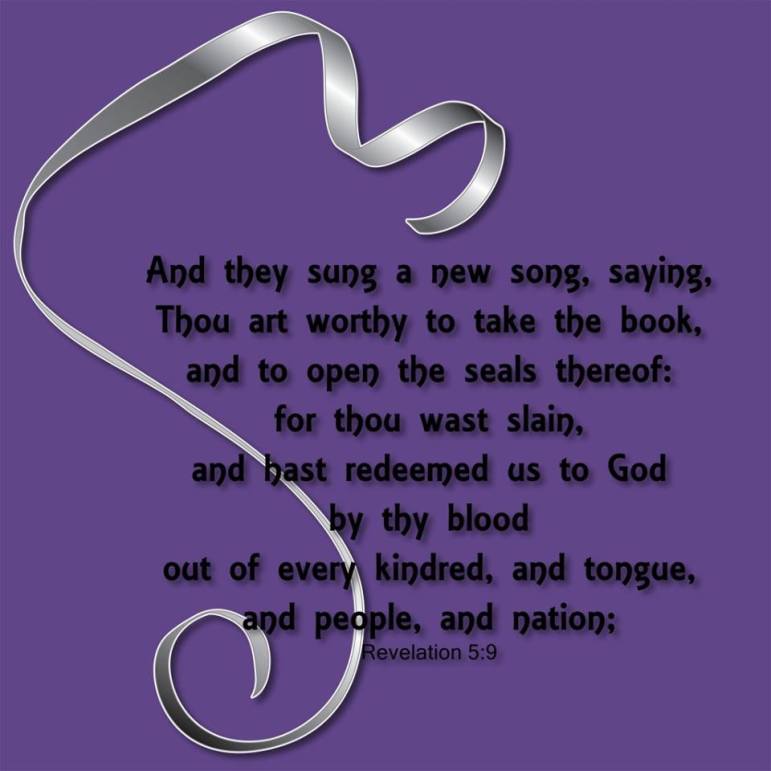 The Three Day Three Night Mystery
The Three Day Three Night Mystery
Tuesday, April 11th, 2006
Q. It seems that if Jesus were buried Thursday afternoon, he wouldn’t have been in the grave 3 full days and 3 full nights. For that to have happened, he would have had to been crucified on Wednesday. Any thoughts?
A. You’re adding to the text. It doesn’t say three full days and three full nights. Literally the Greek is three day periods and three night periods. Also the Jewish day goes from sunset to sunset, and night precedes day. He died on Thursday about 3 in the afternoon, being on the cross since morning, and was immediately laid in the tomb. Day 1. At sunset it became Friday night. Night 1. The next morning was Friday day. Day 2. Then at sunset it was Saturday night. Night 2. Then Saturday day. Day 3. Then Sunday night, Night 3. By Sunday morning He had risen from the grave.
Still More On The Three Day Three Night Mystery
Saturday, April 21st, 2012
Q. I’ve noticed several commentators saying the crucifixion had to happen on Wednesday because the Lord had to be in the belly of the Earth three full days and three full nights for a total of 72 hours to fulfill the sign of the prophet Jonah. How do you reconcile that with a Thursday crucifixion?
A. I can’t find a single English translation that says “three full days and three full nights” or requires the passage of 72 hours to fulfill the intent of eitherJonah 1:17, where the phrase originated, or Matt. 12:40 where Jesus repeated it. Quoting from Strong’s concordance, “Eastern usage of this term differs from our western usage. Any part of a day is counted as a whole day, hence the expression ‘three days and three nights’ does not mean literally three whole (24 hour) days”. According to this definition, a Thursday crucifixion easily meets the requirements.
Also the testimony of the two disciples Jesus encountered on the road to Emmaus confirms Sunday as the third day since the crucifixion (Luke 24:21), making Saturday the second day since, Friday the first day since, and Thursday the day of the crucifixion. Depending on whose opinion you like, Emmaus was between 4 and 7 miles from Jerusalem. Proponents of a Wednesday crucifixion would have the disciples going there on Saturday which far exceeds the distance permitted by Jewish law for a Sabbath day’s journey.

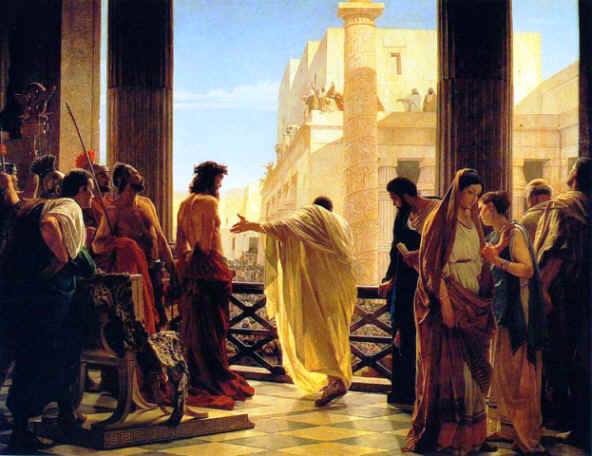

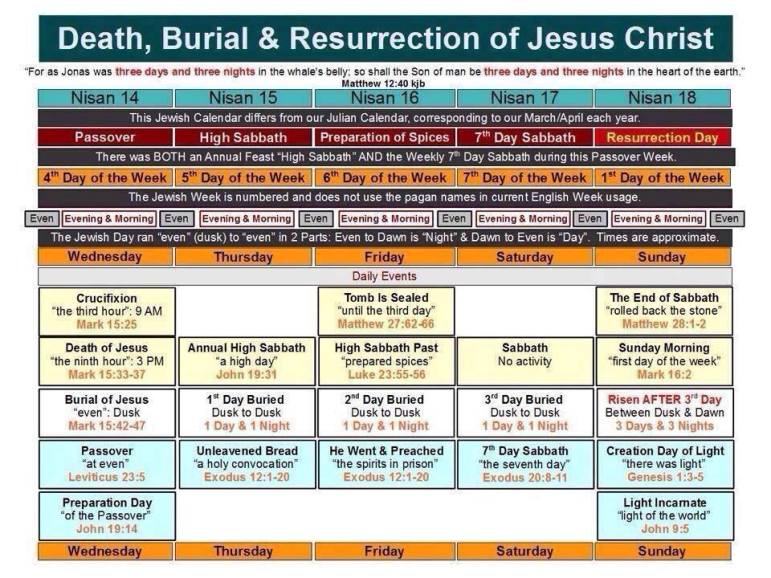
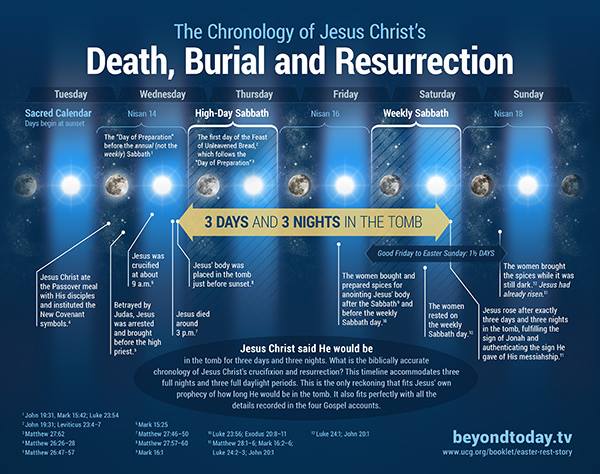

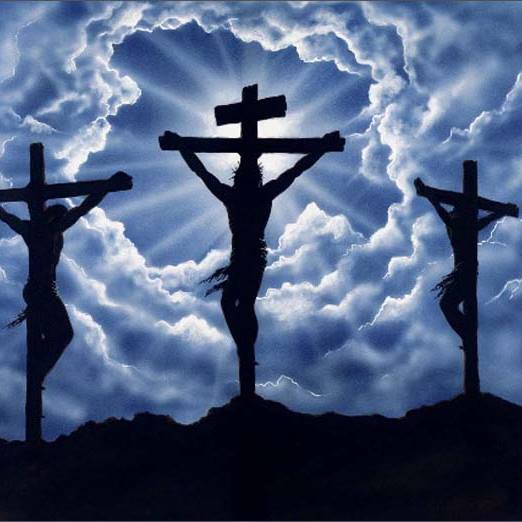


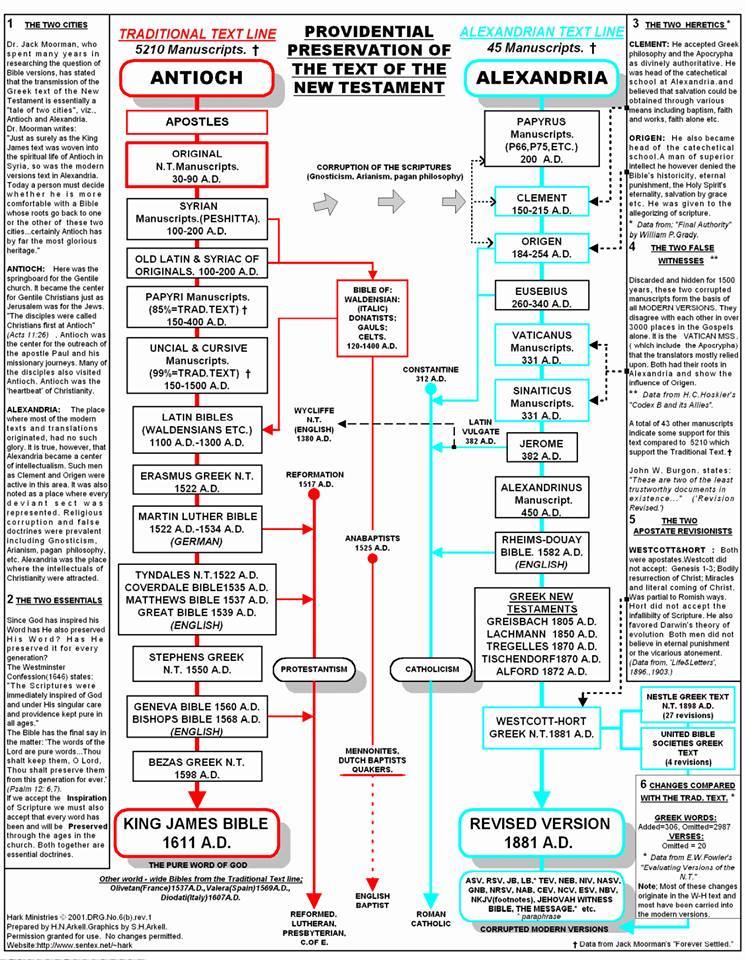



No comments:
Post a Comment